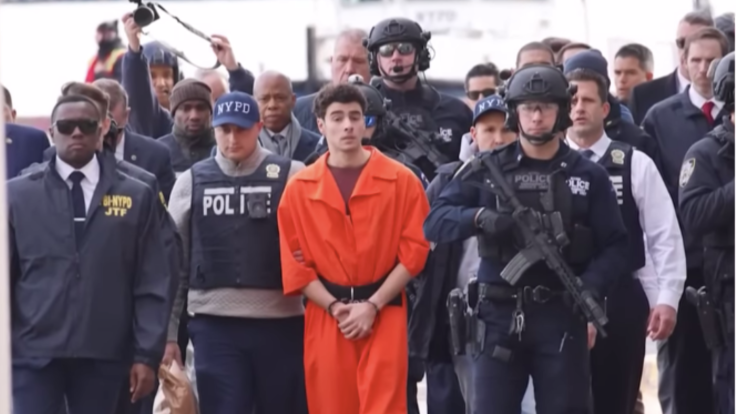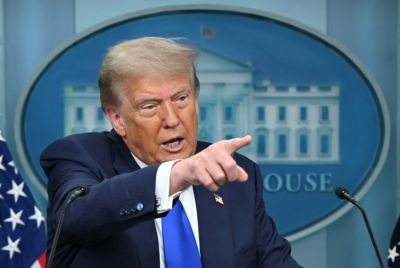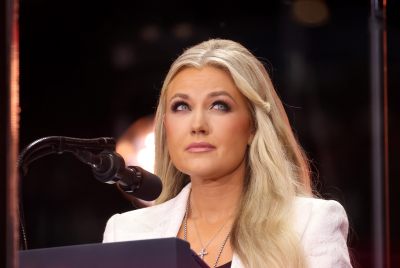Was Luigi Mangione Radicalised in Asia? The Truth Behind His 'Spiritual Trip' That Ended in Murder

When Luigi Mangione, a 27-year-old Ivy League graduate from Maryland, set off on a months-long journey through Thailand and Japan, he told friends he wanted to 'zen out.' He described the trip as a spiritual reset after leaving his tech job, an escape into meditation, solitude, and reflection. But what began as a quest for peace appears to have unravelled into something far darker.
Authorities now allege that Mangione's travels marked a turning point, from restless traveller to accused assassin, according to the New York Post.
From Tech Worker to Alleged Killer
Mangione is charged with the 4 December 2024 fatal shooting of UnitedHealthcare chief executive Brian Thompson in Midtown Manhattan, a crime prosecutors describe as 'premeditated and targeted.'
The US Department of Justice said in a statement that Mangione allegedly stalked Thompson for days before carrying out the attack.
According to 6ABC Philadelphia, police recovered handwritten notes in which Mangione railed against large health-insurance companies, calling them 'parasites.'
Investigators say his motive was rooted in anger toward America's healthcare system, which he blamed for his financial and medical frustrations.
Criminologist James Alan Fox of Northeastern University told Northeastern Global News that Mangione's background--wealthy upbringing, elite education, and no criminal history--deviates from the typical lone-gunman profile.
'It looks more like a symbolic takedown,' Fox said, 'someone who sees a powerful target as representing injustice.'
Troubling Signs During His Asia Trip
While abroad, Mangione's online posts and private messages revealed sudden changes in tone. In Japan, he wrote that he wanted 'some time to zen out... just hot spring, do some writing,' reported the New York Post.
He reportedly isolated himself in the mountain town of Tenkawa, avoiding digital contact and speaking little with other guests. Hotel staff described him as 'quiet' and withdrawn.
In Thailand, he told friends he had been 'beaten up by seven ladyboys' after a late-night altercation in Bangkok, claiming his phone was stolen in a taxi--details later reported by the Post.
He also texted that he 'couldn't believe' how cheap medical scans were in Thailand compared to the US, an experience that may have reinforced his resentment toward American insurers.
These encounters appeared to shift his mindset from a search for peace to a growing sense of grievance and alienation.
Radicalisation or Breakdown?
Whether Mangione was radicalised or simply spiralling remains unclear. During a six-day stay at a Japanese guesthouse, he reportedly used no digital devices and kept to 'the minimum necessary conversations,' staff told the Post.
Police later recovered writings from his home that condemned corporate America and asserted that health insurers had it coming, according to 6ABC Philadelphia.
Experts say such expressions point to ideological radicalisation rather than sudden psychosis. Still, Mangione's prior back injury and dissatisfaction with US medical bills — as detailed by the Post — may have deepened his anger long before he left the country.
The evidence suggests Mangione's time in Asia intensified his disillusionment rather than caused it. His 'spiritual trip,' as People Magazine described it, preceded the murder by only months--a haunting timeline that blurs the line between enlightenment and descent.
A Journey That Became a Catalyst
Relatives told reporters they lost contact with Mangione for months. He had left his co-living apartment in the US and was reported missing in November 2024.
In Thailand, companions said he stopped socialising and began visiting a gun range.
When he returned to the US that July, he reportedly cut off friends and family. People Magazine noted that his texts from this period were erratic and detached, hinting at an unravelling mental state.
The Killing and Arrest
On December 4, prosecutors say Mangione shot Brian Thompson outside his Manhattan office and fled, later boarding a train to Pennsylvania. He was arrested at a McDonald's five days later, 6ABC reported.
Police discovered bullet casings engraved with the words 'delay,' 'deny,' and 'depose,' a chilling reference to common insurance-industry jargon, according to The Post.
Mangione has pleaded not guilty to federal charges of murder and stalking, which carry a potential death penalty.
Defence and Broader Reflections
Mangione's defence team argues that prosecutors have turned the case into 'a public spectacle.'
Criminologists caution that while his trip to Asia might have intensified his disillusionment, the deeper forces were loneliness, anger, and ideology.
As one investigator told 6ABC Philadelphia, 'The trip didn't cause the crime—but it may have crystallised his worldview.'
The case underscores how isolation and resentment can metastasise into violent conviction.
Whether Mangione was radicalised abroad or long before he boarded that plane, one fact remains: the path he called 'spiritual' led not to enlightenment, but to tragedy.
© Copyright IBTimes 2025. All rights reserved.





















